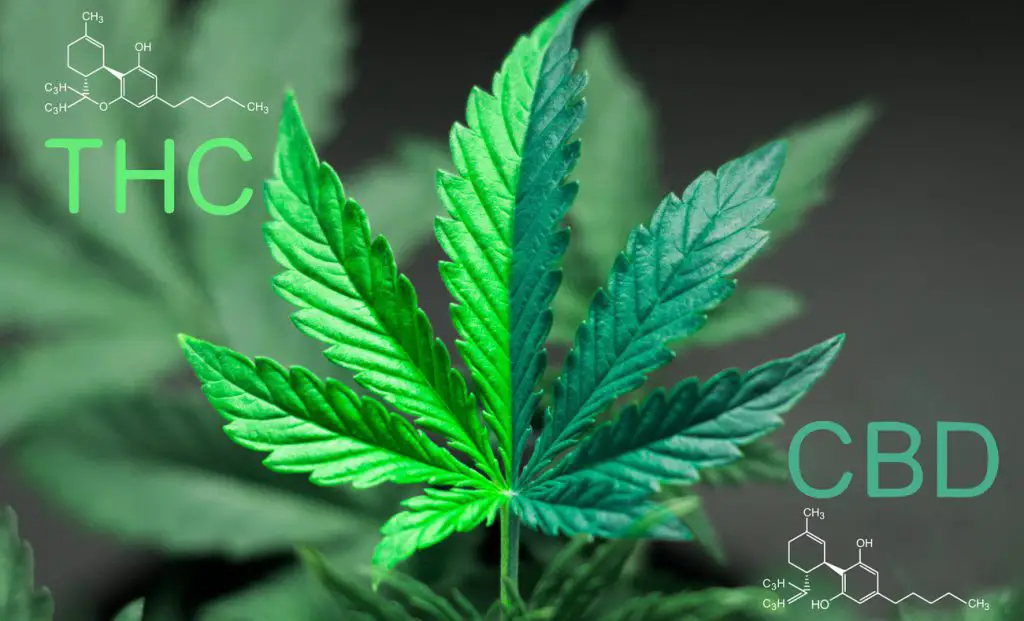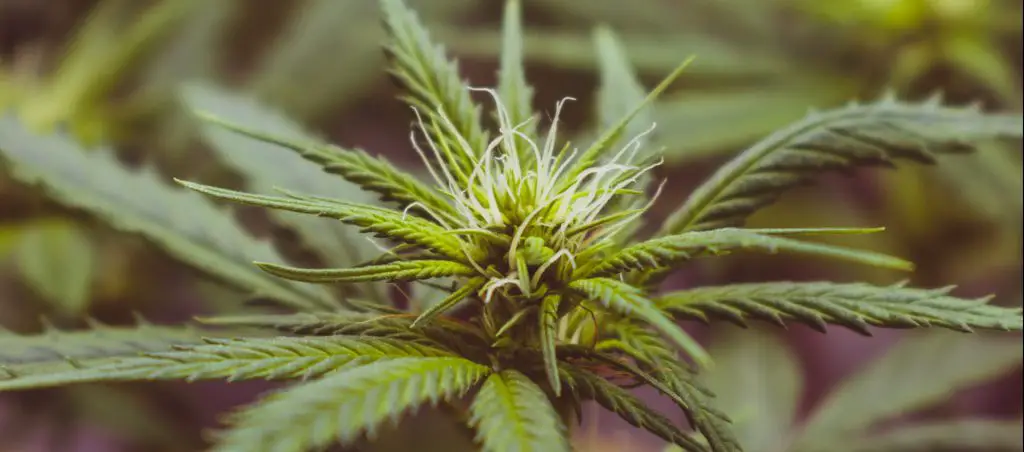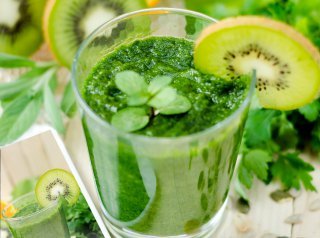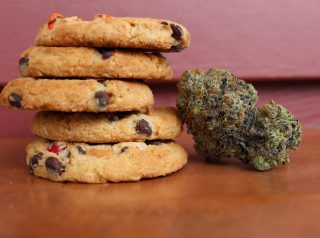Fear is an evolutionary trait that ensures survival. Humans are preconditioned to fear and get anxious over certain things, prompting us to avoid potentially dangerous circumstances. So, it is perfectly normal to experience fear every once in a while. However, sometimes, the level of trepidation becomes excessive and recurring even in the absence of a real threat. This is when it becomes a mental health concern. Fortunately, marijuana can help when taken in proper doses.
Page Content
Anxiety 101
According to the World Health Organization (WHO), 1 in 13 people suffer from anxiety, making it the most common mental disorder.
The American Psychological Association (APA) defines anxiety as an emotion characterized by feelings of tremendous tension, worry, and physical changes (ex: rapid heartbeat, sweating, trembling) upon anticipating circumstances that one wishes to avoid. It is different from rational fear as anxiety can make the person feel excessive trepidation even when there is no real threat to safety.

People with anxiety disorders also usually have recurring intrusive thoughts to the point that it is interfering with their day to day functioning. When left untreated, it could negatively affect the patient’s relationships and performance in work or school.
The Diagnostic and Statistical Manual of Mental Disorders (DSM 5) lists the following types of anxiety disorders:
- Panic Disorder – 300.01 (F41.0)
- Generalized Anxiety Disorder – 300.02 (F41.1)
- Social Anxiety Disorder (Social Phobia) – 300.23 (F40.10)
- Specific Phobia – 300.29
- Separation Anxiety Disorder – 309.21 (F93.0)
- Mixed Anxiety and Depressive Disorder – (F41.2)
- Selective Mutism – 312.23 (F94.0)
- Substance/Medication-Induced Anxiety Disorder – 292.8 (F19.18)
What It Feels Like To Have Anxiety
Excessive fear is one of the hallmark symptoms of anxiety. However, since there are several types of anxiety disorder, the symptoms will vary. It is best to consult mental health professionals for a proper diagnosis due to the intricate nature of anxiety.
In general, though, anxiety is usually characterized by the following symptoms:
Emotional:
- Sense of unreality
- Excessive panic, apprehension, and nervousness
- Inappropriate and extreme worry
- Excessive and unhealthy alertness for signs of danger
- The constant fear that panic attacks might occur
- Fervent desire to avoid things that instigate anxiety
- Fear of being embarrassed or criticized
- Persistent failure to speak an act accordingly in certain social situations
- Inability to stay calm and still
Physical:
- Panic attacks
- Tremors
- Palpitations and sweating
- Abnormal sensations on the skin such as tingling, pricking, chilling, burning, or numbness
- Shortness of breath
- Chest pain
- Feelings of choking and suffocation
- Dry mouth
- Nausea
- Dizziness
- Headache
- Tense muscles
- Abdominal aches
- Trouble sleeping or insomnia
Causes
Determining the cause of anxiety is an essential step towards treating the disorder. It may be caused by a mental disorder, a physical condition, the effects of substances, or a combination of the aforementioned.

Some other causes include, but is not limited to:
- Panic disorder
- Generalized anxiety disorder
- Phobia
- Stress
- Hyperthyroidism
- Hypoglycemia
- Pulmonary embolism
- Heart abnormalities such as arrhythmia or mitral valve prolapse
- Side effect of medication
- Caffeine
- Illicit drugs such as amphetamines, cocaine, and marijuana
THC in Marijuana as a Possible Cause
Marijuana’s anxiety-relieving effects are already well-documented. However, it is also no secret that anxiety and panic attacks are among the most commonly noted adverse effects of THC intoxication. Such information may seem conflicting, but in truth, cannabis can either attenuate or exacerbate anxiety. It all depends on the dosage and the cannabinoid used.
THC – the psychoactive component of cannabis – has a biphasic dose effect. This basically means that at low doses, it eases stress and anxiety, but at higher doses, it does the opposite. This thin line between bliss and distress is especially evident for novices and infrequent users. So, to avoid cannabis-induced anxiety disorder, make sure to go low and slow when dosing on THC.
It is also worth noting that the risk of experiencing anxiety due to THC intoxication is also dependent on the following factors:
- Individual and genetic vulnerability
- Personality traits
- Gender
- Frequency of use
- THC dosage
- Marijuana strain
- History of previous anxiety reaction
- Pre-existing anxiety disorder
- Environment
- Context of use
Conventional Treatments
There is no single cookie-cutter approach to treating anxiety disorder. This is because there are many types of this disorder, and each has its own manifestations, so the treatment should be on a case-to-case basis.
Usually, though, conventional therapeutic options include lifestyle changes, psychotherapy such as cognitive behavioral therapy, and anxiolytic medications like:
- Selective Serotonin Reuptake Inhibitors (SSRIs)
- Serotonin-Norepinephrine Reuptake Inhibitors (SNRIs)
- Benzodiazepines
- Anti-seizure medications
- Tricyclic antidepressants
- Beta-blockers
Among the said options, pharmaceutical drugs offer the fastest and most guaranteed relief as they ease anxiety symptoms as soon as they get absorbed by the body. However, despite providing temporary relief, these medications often induce adverse side effects such as:
- Jitters
- Restlessness
- Sweating and tremors
- Fatigue
- Headaches
- Nausea
- Insomnia
- Impaired cognitive functioning
- Worsened anxiety
- Changes in weight or appetite
- Gastrointestinal problems such as diarrhea or constipation
- Sexual dysfunction
- Suicidal ideation/attempts
How Cannabis Helps Relieve Anxiety
To understand how cannabis quells anxiety, it is important to first understand the function of the endocannabinoid system (ECS).
The endocannabinoid system’s primary function is to maintain homeostasis. In other words, it regulates the equilibrium of important physiological processes, such as:
- Sleep
- Appetite
- Mood
- Memory
- Digestion
- Pain detection
- Immune response
- Reproduction and fertility
- Endocrine function
The ECS influences such processes through retrograde signaling, wherein the naturally-occurring endocannabinoids – anandamide (AEA) and 2-arachidonoylglyerol (2-AG) – affect the excitatory and inhibitory signaling in the brain by binding to CB1 and CB2 receptors.

Now, phytocannabinoids (cannabinoids found in plants) such as THC and CBD work the same way as the endocannabinoids naturally produced by our body. THC mainly binds with CB1 receptors, although it could also interact with CB2 receptors. CBD, on the other hand, has a low affinity with both cannabinoid receptors. So, it interacts with the ECS through indirect mechanisms such as the stimulation of adenosine, serotonin, and vanilloid receptors.
CB1 receptors are found in abundant levels in the amygdala – the part of the brain chiefly responsible for perceiving fear and managing the fear response. When THC binds with these receptors, it decreases the brain’s ability to feel fear and perceive threats. This explains why consuming cannabis can help lessen an individual’s anxiety.
Meanwhile, CBD works as an anxiolytic by stimulating serotonin production through its interaction with the 5-HT1A receptors. After all, high serotonin levels produce a calming effect. On top of that, CBD is non-psychoactive, and unlike THC, it does not exhibit a biphasic effect, so whether taken in high or low doses, it will undoubtedly quell anxiety. As such, it is often the preferred choice for combatting anxiety.
Lastly, the terpenes found in cannabis also contribute to its anxiety-relieving effects. Aside from giving the herb its distinct aroma, terpenes like limonene, linalool, and beta-caryophyllene also offer potent sedative and anti-anxiety properties.
Why Choose Medical Marijuana Over Traditional Anxiolytics
With easing restrictions on medical marijuana, patients now have the prerogative to opt for this all-natural medicinal alternative in treating various health conditions such as anxiety. While anti-anxiety drugs are helpful – and in many cases, much needed – there are several reasons why cannabis could be a better choice than synthetic drugs:
Less Adverse Effects
Given the unpleasant offshoots of conventional anxiolytic medications, it comes as no surprise that more and more people are turning to all-natural alternatives such as cannabis to ease anxiety. After all, it poses minimal side effects as long as dosed appropriately. Moreover, the herb has an overall safer drug profile, especially CBD, which is well-tolerated by the body even in high amounts.
Helps Alleviate Other Associated Symptoms
Aside from helping you calm down and break free from the reins of anxiety, cannabis can also help ease other symptoms that come with it. For instance, its sedative properties can help promote better sleep, as anxiety disorders are often accompanied by sleeping troubles such as insomnia. The herb also boasts of potent analgesic and muscle relaxant properties, which helps alleviate pain, fatigue, and muscle tension or cramping.
Needless to say, cannabis provides a holistic approach to providing relief. It doesn’t just quell anxiety; it goes above and beyond.
Long-lasting Effect
When infused in food and beverages, the effects of cannabinoids can extend for as long as 6 to 12 hours, depending on its potency. This means you can say goodbye to repeated dosing and spend the rest of the day in a blissed-out and worry-free state. The catch, however, is that cannabis edibles take anywhere from 30 to 90 minutes before taking effect. With edibles, you can achieve long-lasting relief from anxiety but at the cost of a slower onset of effects.
Faster Onset
If you prefer a rapid yet short-lived relief from anxiety, opt for vaporized CBD or THC isolates. It will take effect within minutes of taking a drag, and will last anywhere from 2 to 4 hours. Vaping medical marijuana is especially useful for those experiencing panic attacks, as it could provide immediate calming effects.
Best Strains for Combatting Anxiety
In choosing the strain for the best anxiety-relieving experience, consider the cannabinoid and terpene composition. After all, these compounds are among the important factors that will determine the effect you will feel upon consumption.
High-CBD Strains
In general, CBD strains are more recommended in combatting anxiety as it does not cause an intoxicating “high.” Moreover, it is well-tolerated by the body. Hence, even high doses rarely cause any side effects other than dry mouth and red eyes. In fact, CBD could also counteract the negative effects of THC.

If you decide to opt for high-CBD strains for anxiety relief, here are your best bets:
CANNATONIC
- CBD: 6 to 17%
- THC: <6%
- Primary Terpenes: Myrcene, Pinene, Caryophyllene
- Genotype: Hybrid
Cannatonic is a hybrid meticulously bred with high levels of CBD and low concentrations of THC. Such a cannabinoid profile gives it a well-balanced soothing and uplifting effect. This, in turn, makes it perfect not only for alleviating anxiety, but also for easing other associated symptoms such as pain, muscle spasms, fatigue, and the likes.
CBD SHARK
- CBD: 6 to 10%
- THC: 6 to 10%
- Primary Terpenes: Pinene and limonene
- Genotype: Indica-dominant
CBD Shark dons a 1:1 THC to CBD ratio. Its high CBD concentration allows it to alleviate anxiety without inducing an intoxicating high. Apart from that, this immensely relaxing strain can also help attenuate stress, insomnia, depression, migraines, and inflammation.
HARLEQUIN
- CBD: 8 to 16%
- THC: 4 to 7%
- Primary Terpenes: Myrcene, Pinene, Caryophyllene
- Genotype: Sativa-dominant
Harlequin is an energizing strain with a unique CBD to THC ratio of 5:2. Its high CBD level grants it potent yet non-sedating anti-anxiety effects. It also induces a mild, clear-headed high and slight boosts of energy. Besides easing anxiety-stricken minds, Harlequin is also an excellent remedy for stress, headaches, fatigue, and chronic pain.
ACDC
- CBD: 19 to 20%
- THC: <1%
- Primary Terpenes: Myrcene, Pinene, Caryophyllene
- Genotype: Sativa-dominant hybrid
With an impressive CBD to THC ratio of 20:1, ACDC ensures potent anxiety relief without exerting any psychoactive effects. It also helps prevent tremors, paranoia, and insomnia often observed in patients suffering from anxiety. Furthermore, this strain is also useful in managing symptoms of various ailments, including epilepsy, multiple sclerosis, Parkinson’s disease, and even cancer.
CANNA-TSU
- CBD: 10%
- THC: 6%
- Primary Terpenes: Linalool, Caryophyllene, Myrcene, Beta-Pinene
- Genotype: Hybrid
This strain is a CBD-abundant hybrid sought-after for its potent anxiolytic properties and well-balanced effects. Given its high CBD concentration and low THC content, Canna-tsu reduces stress and anxiety levels while also inducing a subtle mind-clearing high. It is also the go-to remedy of patients ailing from pain, inflammation, anxiety, and seizures.
High-THC Strains
Dosing on THC in the hopes of relieving anxiety requires immense caution. This is because if you consume too much of it, you’ll risk exacerbating your anxiety. Nonetheless, it is just as effective as CBD in delivering relief as long as it is taken in controlled low doses, especially varieties with high THC levels such as these:

GIRL SCOUT COOKIES (GSC)
- CBD: <1%
- THC: 16 to 21%
- Primary Terpenes: Caryophyllene, Limonene, Humulene
- Genotype: Hybrid
Girl Scout Cookies is famed for its profound psychoactive and medicinal benefits. When taken in moderation, it effectively relieves stress and anxiousness – thereby making it ideal for people with PTSD and other anxiety disorders. This strain is also excellent for treating chronic pain, nausea, and appetite loss.
STRAWBERRY COUGH
- CBD: <1%
- THC: 15 to 19%
- Primary Terpenes: Caryophyllene, Myrcene, Pinene
- Genotype: Sativa-dominant
This strawberry-scented strain is an excellent alternative for attenuating stress and anxiety. Moreover, its mood-enhancing qualities heighten one’s energy level. Hence, making it well-suited for remedying social anxiety disorders.
GRANDADDY PURPLE (GDP)
- CBD: 15 to 19%
- THC: <1%
- Primary Terpenes: Caryophyllene, Myrcene, Pinene
- Genotype: Indica-dominant
Granddaddy Purple is known for its sweet berry aroma and the remarkable combo of cerebral euphoria and physical relaxation. Given such effects, this strain is often used to alleviate anxiety, along with pain, stress, insomnia, and muscle spasms.
NORTHERN LIGHTS
- CBD: 14 to 19%
- THC: <1%
- Primary Terpenes: Myrcene, Caryophyllene, Myrcene, Limonene
- Genotype: Indica-dominant
Northern Lights is a timeless Indica classic renowned for its sedative and euphoric properties. It soothes both the mind and the body, which makes it perfect for calming the nerves and easing away stress and worries.
BLACKBERRY KUSH
- CBD: 13 to 18%
- THC: <1%
- Primary Terpenes: Myrcene, Caryophyllene, Myrcene, Limonene
- Genotype: Indica-dominant
Blackberry Kush is most known for its majestic dark purple buds, but the herb’s immensely tranquilizing effects are also noteworthy. This makes it a sought-after remedy for anxiety, pain, and insomnia.






Do you need a prescription to get weed in a weed dispensary?
Hi Liz, thanks for dropping by. Yes, a prescription is needed for you to get weed in a dispensary.
awesome! I hope they pass the legalities surrounding the medical marijuana bill!